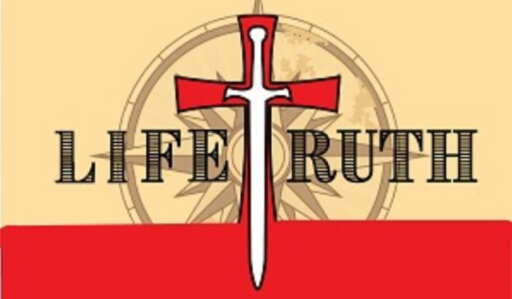it’s time for our monthly venture into taking an expository look at scriptures. We record a live episode her keys and his friend 20 wrangle discuss the passage. Later, in postproduction we insert some remarks from our usual cast of characters. Nathan Caldwell provides some insights, as does our favored long deceased radio Bible teacher of the airwaves, J Vernon McGee.
John 18:1-11
Judas Betrays Jesus
Jesus had just spoken the words of his prayer, as written in chapter 17. Though John doesn’t record the prayer, we discussed the possibilities that he may have been talking about just completing his prayer in the garden of Gethsemane. It was at this time that he and his disciples crossed the brook of Kedron, which was apparently in its stage of being a dry riverbed. It was a familiar place that they had gone to often in the past.
Judas would have certainly known for the place was. By now, he had a Roman cohort along with the detachment from the temple guard with him. The cohort would’ve numbered around 600 fully armed men. They all had come armed with lamps, torches and weapons. All of this only to search their campsite for a small ragtag band, and in particular their leader.
While the disciples seem to have been sleeping, Jesus was president of mind enough to know what was happening. The guards didn’t have to look for him very hard. He went to them to ask them, “who do you seek?”
The Roman guards responded, “Jesus of Nazareth’s.” J Vernon McGee points out that they weren’t seeking the Lord, or a king or a Savior. They were simply looking for a man. Jesus replied, “I am.” Judas is said to be standing with them, meaning the Romans. J Vernon McGee remarks that in the moment he also did not recognize Jesus along with the soldiers.
It was at this moment when he claimed that, “I am,” that they step backwards, and fell to the ground. Was it simply they were astonished that Jesus admitted to be who the they were looking for? Was there something unseen at play? What was meant by the pronoun “they”? Tony suggests that it might mean the disciples instead of the Romans. Keith acknowledges the point, but is inclined to disagree. J Vernon McGee points out that they fell backwards, not the typical posture for someone who may be falling to the ground in a position of worship. Tony also remarks at the courage of Jesus to stand up and face the Romans. This should serve as an example for believers to stand up in the face of danger when called upon to do so.
The moment of confusion seems to clear, and Jesus asked his question again. The Romans once again stated they were looking for Jesus of Nazareth.
Jesus asserted that he was the person they’re looking for. This time he added the command that they should let the other ones go. His disciples were not having a Spartacus moment and standing by Jesus side. They were all suffering about of cowardice. Keith remarks that he doesn’t admonish them. He is actually protecting them, because this is a mission that he knows can only be accomplished by him.
His demand that the Romans let his disciples go is said to be according to Scripture. Keith points out that he just made the statement in the previous chapter during his priestly prayer to God and protecting his disciples. Even that statement is probably a restatement of Old Testament prophecy, although off the top of our heads we couldn’t find it. At any rate, he is protecting his disciples so that none should be lost except for the son of perdition.
At this point, the ever-impetuous Peter shows up with the sword. John doesn’t mention where he got it from, or why he has it. Tony locates the cross reference from Luke, as does J Vernon McGee to point out where Jesus had told his disciples to arm themselves and that the sword they had was enough. In Peter’s mind, the practical thing to do is to stand and fight. He draws the sword. He swings, and cuts off an ear. Actually, the Greek word could either mean to amputate or to mangle. We find that the ear belongs to a man named Malka’s. We find out again by cross-referencing Luke that Jesus healed the man. Tony points out that the purpose of having a sword was the point at that the swords would not be needed. The battle that Jesus was facing was a spiritual battle, not a physical battle.
The odds of one fisherman, untrained with the sword, defeating an entire battalion of well-trained and fully armed troops is unlikely. It’s happened before. David and his mighty men have fought against higher lines. Gideon and his small band defeated an army. Samson and the jawbone of a donkey defeated a crowd of men. If it was to glorify God, then why couldn’t Peter defeat this cohort alone? The simple answer is that it wasn’t his battle to fight. This would be on Jesus, and on Jesus alone. The disciples had other missions and other battles in your future.
Jesus puts an end to it by telling Peter to throw his sword back into its sheath. There is a cup of wrath set before him by his father, and why should he not drink it alone?
Salvation has a price that can only be paid by the Messiah, and he was going to bravely rise to the task set before him. Maybe not joyfully. But certainly not grudgingly. This cup of the father represented the fulfillment and completion of his mission.
Credit
Thanks to the recorded comments from J Vernon McGee. His ministry and daily bible study live on through Through the Bible Ministries (ttb.org)
When Scriptures in the show notes and episodes are quoted from the NASB. “Scripture is taken from the NEW AMERICAN STANDARD BIBLE®, Copyright © 1960,1962,1963,1968,1971,1972,1973,1975,1977,1995 by The Lockman Foundation. Used by permission.
–>
!–
Scripture taken from the New King James Version®. Copyright © 1982 by Thomas Nelson. Used by permission. All rights reserved.–>
Podcast: Play in new window | Download (Duration: 58:53 — 53.9MB)
Subscribe: Apple Podcasts | Amazon Music | Podchaser | RSS | More

